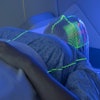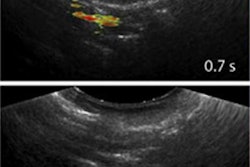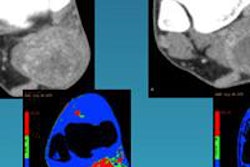Radiation therapy (RT) alone is as effective as radiation therapy combined with chemotherapy for decreasing swallowing complications experienced by advanced esophageal cancer patients, according to research presented at this week's American Society for Radiation Oncology (ASTRO) meeting in San Francisco.
The researchers aimed to evaluate the use of palliative chemotherapy combined with radiation therapy to relieve dysphagia, or difficulty swallowing, a complication of advanced esophageal cancer. The international study included sites in Australia, New Zealand, Canada, and the U.K.
A total of 220 patients were randomized to receive a course of palliative radiation therapy: 109 received only radiation therapy, while 111 received concomitant chemoradiotherapy including cisplatin and fluorouracil. The subjects were assessed for swallowing complications at week 9 through week 13.
Of the patients who received radiation therapy alone, 68% reported an improvement in their dysphagia, compared with 74% of patients who received chemoradiotherapy. Gastrointestinal side effects were reported in the chemoradiotherapy patients, including nausea and vomiting.
The median survival was 203 days for patients who received radiation therapy alone and 210 days for patients who had chemoradiotherapy, demonstrating comparable survival prognosis for both groups.
"These results will allow us to simplify the treatment for patients who cannot be cured but who can expect an improvement in swallowing and quality of life as a result of radiation therapy alone; and these patients can be spared the extra toxicity and cost of chemotherapy," said lead author Michael Penniment, from Royal Adelaide Hospital in South Australia, in a statement.



















